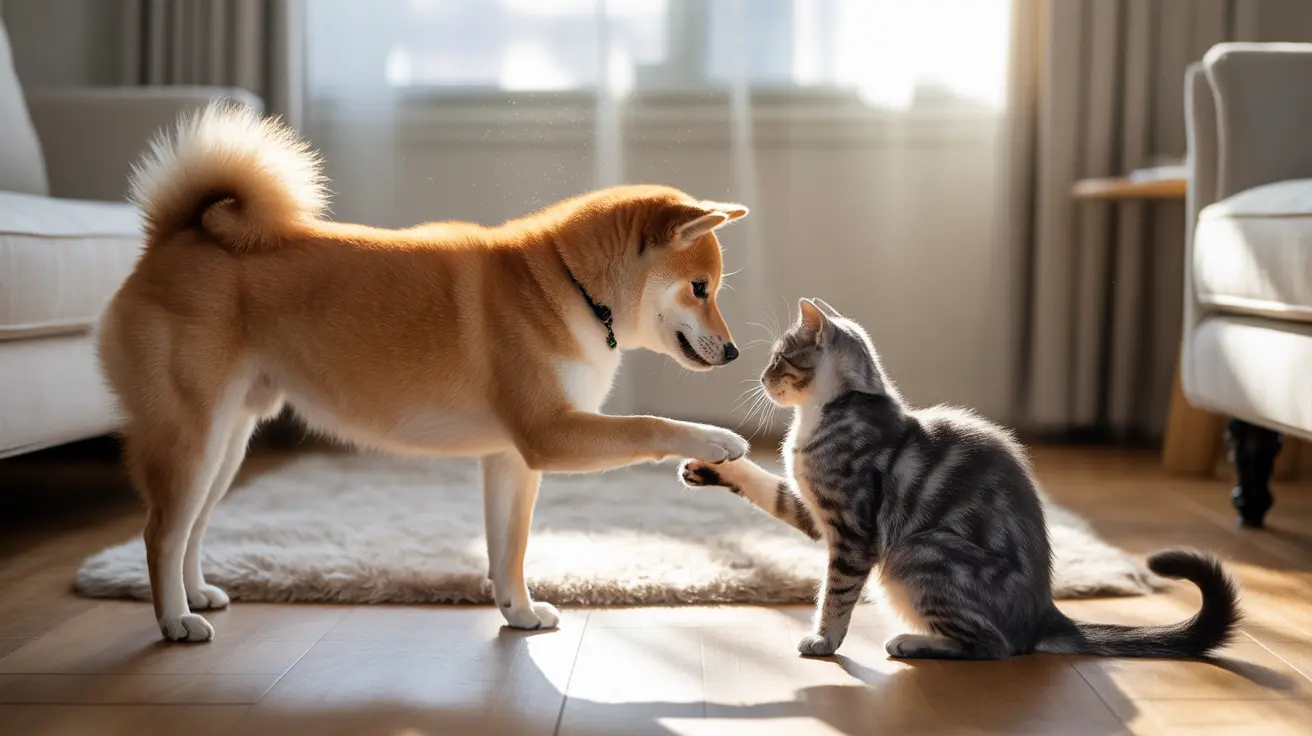The relationship between dogs and cats has long been a subject of curiosity and concern for pet owners. While dogs descended from wolves and retain some predatory instincts, the reality of whether dogs eat cats is far more complex than popular culture might suggest. This comprehensive guide will explore the truth behind this question and help pet owners understand the real dynamics between these two species.
As responsible pet owners, it's crucial to understand that while dogs may chase cats due to their predatory instincts, domestic dogs rarely have any interest in consuming cats. This behavior is typically rooted in territorial instincts, prey drive, or lack of proper socialization rather than a desire for food.
Understanding Canine Predatory Behavior
Dogs inherit certain behavioral traits from their wolf ancestors, including the chase response and prey drive. However, thousands of years of domestication have significantly modified these instincts in most household pets. Modern domestic dogs are typically well-fed and have lost much of their ancestral drive to hunt for sustenance.
When dogs chase cats, they're usually acting on instinct rather than hunger. This behavior is part of what ethologists call the "predatory sequence," which includes stalking, chasing, and catching. However, well-socialized dogs rarely complete this sequence, especially with cats they know.
The Role of Proper Socialization
Early exposure and positive experiences between dogs and cats play a crucial role in determining their future relationships. Dogs introduced to cats during their critical socialization period (between 3-16 weeks of age) are more likely to view cats as companions rather than prey.
Many dogs and cats can become best friends when properly introduced and supervised. This peaceful coexistence is particularly common when:
- Dogs are raised with cats from puppyhood
- Both animals are given proper space and resources
- Positive interactions are rewarded and reinforced
- Professional guidance is sought for introductions when needed
Breed-Specific Considerations
Some dog breeds have stronger prey drives than others due to their breeding history. Breeds traditionally used for hunting or herding may require more careful management around cats. However, individual personality and training play significant roles in how any dog interacts with cats, regardless of breed.
Managing Multi-Pet Households
For households with both dogs and cats, creating a safe and harmonious environment is essential. This includes:
- Providing separate spaces for each pet
- Ensuring cats have escape routes and high places
- Supervising all interactions, especially initially
- Maintaining consistent feeding schedules
- Using positive reinforcement training
Special Circumstances and Feral Animals
While domestic dogs rarely pose a threat to cats in terms of predation, the situation can be different with feral or severely neglected dogs. These animals, driven by hunger and lack of socialization, might exhibit more predatory behavior. However, even in these cases, actual consumption of cats remains extremely rare.
Frequently Asked Questions
Can dogs really eat cats, or is it just a myth?
While dogs technically can eat cats, it's extremely rare among domestic dogs. Modern pet dogs are well-fed and typically have no interest in consuming cats, even if they might chase them due to instinctual behavior.
Why do dogs chase cats but rarely eat them?
Dogs chase cats primarily due to predatory instinct and excitement rather than hunger. This behavior is rooted in their ancestral hunting instincts but has been significantly modified through domestication.
Is it safe for dogs to eat cat food, and what are the health risks?
While not immediately dangerous, regular consumption of cat food can cause health problems in dogs, including pancreatitis, obesity, and digestive issues. Cat food is formulated specifically for feline nutritional needs and isn't appropriate for dogs.
How can I prevent my dog from eating my cat's food?
Create separate feeding areas, use elevated surfaces for cat food, implement feeding schedules, and consider using baby gates or cat doors to keep dogs away from cat food areas.
What steps should I take if my dog shows signs of illness after eating cat food?
If your dog shows symptoms like vomiting, diarrhea, or lethargy after consuming cat food, contact your veterinarian immediately. Monitor their behavior and follow professional medical advice.
Remember, with proper training, socialization, and management, dogs and cats can live together harmoniously, making the question of whether dogs eat cats largely irrelevant in most household situations.






